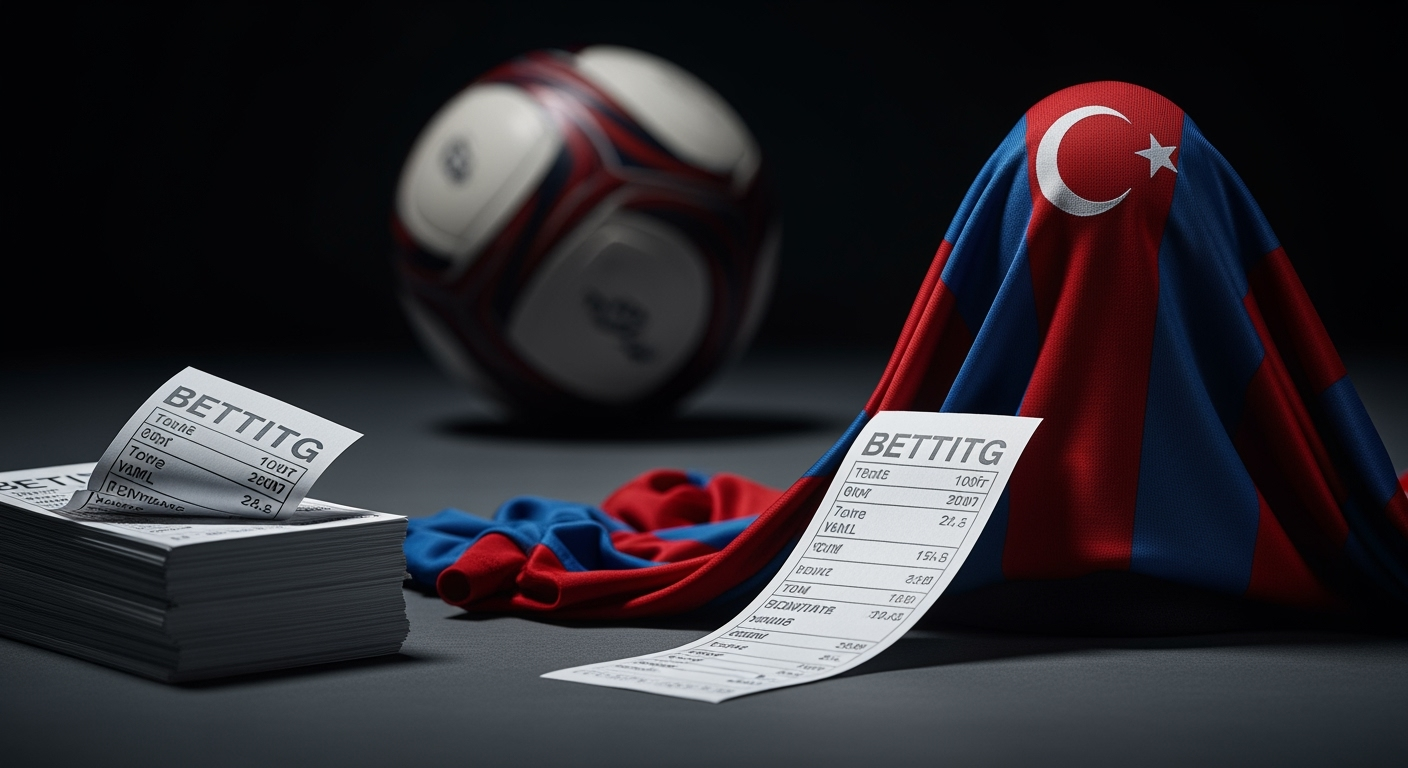Related Articles

Harry Kane: The Unprecedented Goal-Scoring Phenomenon at Bayern Munich




Turkish football finds itself embroiled in a profound integrity crisis following revelations that hundreds of its professional referees have engaged in widespread betting activities, prompting an urgent and extensive investigation by the Turkish Football Federation (TFF) and state authorities. This scandal, unveiled after a five-year probe, threatens to undermine the very foundations of fair play and casts a long shadow over the sport's credibility in a nation where football is a passionate affair. The magnitude of the breach has ignited calls for a comprehensive overhaul, as officials grapple with the challenging task of restoring public trust in a league system historically prone to integrity concerns.
The Turkish Football Federation made public on October 27, 2025, the startling findings of an investigation that spanned half a decade, revealing a deep-seated problem within its officiating ranks. TFF President İbrahim Hacıosmanoğlu confirmed that out of 571 active professional referees across various leagues, an alarming 371 were found to possess betting accounts with multiple companies. More critically, 152 of these officials were identified as actively placing wagers on football matches. The scope of the misconduct extended to the highest echelons of Turkish football, implicating seven referees from the Süper Lig, the nation's top flight, and 15 elite assistant referees.
The investigation unearthed particularly egregious cases of betting volume. Forty-two referees were found to have wagered on more than 1,000 matches each, demonstrating a consistent pattern of involvement in gambling activities. In the most extreme instance, one referee reportedly placed an astonishing 18,227 bets over the five-year period under scrutiny. While the TFF indicated that many of these bets were placed on foreign leagues, the potential for manipulation in domestic matches remains a central concern as the investigation continues to unfold. The initial spark for this widespread inquiry reportedly originated from suspicious betting patterns observed in a second-tier league match between Sincan Belediyesi Ankaraspor and Nazilli Belediyespor.
This latest scandal resonates with a troubling history of integrity issues in Turkish football, most notably the 2011 match-fixing scandal that rocked the nation and led to severe repercussions, including arrests, convictions, and European competition bans for implicated clubs such as Fenerbahçe. The recurring nature of such controversies points to deeply entrenched systemic vulnerabilities within the sport.
The recent revelations have also brought renewed attention to prior criticisms regarding officiating standards in Turkey. José Mourinho, the current manager of Fenerbahce, had previously voiced frustrations about the officiating quality during his tenure, comments that were initially met with skepticism but now appear eerily prescient. Mourinho had stated that he believed the issues were "much more serious" than what he had heard before arriving in Turkey, suggesting a deep-rooted problem. His warnings are now widely regarded as having been vindicated by the TFF's comprehensive findings, underscoring a long-standing "crisis of trust and justice" within the Turkish football landscape.
In response to the gravity of the situation, the Turkish Football Federation has moved swiftly to initiate disciplinary proceedings against all implicated officials. TFF President Hacıosmanoğlu emphasized the federation's commitment to "clean up whatever dirt there is" within Turkish football, asserting that the organization had "started by cleaning up our own backyard". Under TFF regulations, referees found guilty of betting on football matches face bans ranging from three months to one year. However, the severity of the scandal may invoke stricter penalties under FIFA guidelines, which could result in three-year bans from all football-related activities and fines approaching £95,000. The TFF has already shared its findings with FIFA and UEFA, indicating the international dimension of this integrity breach.
The investigation's scope is expanding beyond referees. The Istanbul Chief Public Prosecutor's Office has merged its ongoing inquiry with a related case from the Antalya Chief Public Prosecutor's Office, forming a comprehensive probe into illegal betting, potential match-fixing, and money laundering. Authorities are now reviewing the financial records of an estimated 3,700 footballers, alongside club officials and their relatives, indicating a broader effort to root out corruption from the sport. Turkish law, specifically Law No. 6222, stipulates severe penalties for manipulating sporting event results, including imprisonment for one to three years, with organizers of illegal betting facing three to six years behind bars. Turkish President Recep Tayyip Erdogan has also reportedly ordered his cabinet to aggressively combat illegal online gambling, signaling a national commitment to address the issue.
The widespread referee betting scandal represents a significant blow to the integrity and reputation of Turkish football, threatening to erode fan confidence and cast doubt on the fairness of match outcomes. Major clubs have reacted with a mix of dismay and resolve. Fenerbahce President Sadettin Saran described the revelations as "shocking and deeply saddening" but viewed the exposure as a "hopeful development" for long-term positive change. Galatasaray President Dursun Özbek highlighted the long-standing "crisis of trust and justice" that these findings underscore. Meanwhile, Beşiktaş praised the investigation as a "historic step toward clean football," reflecting a shared sentiment that this moment, while painful, offers an opportunity for profound reform.
The challenge ahead for Turkish football is immense. Beyond immediate disciplinary actions, the TFF has announced plans to introduce a nationwide referee training initiative across all 81 provinces, aiming to rebuild professionalism and ethical standards within officiating. The concerted effort by the TFF, state authorities, and clubs signals a determination to address the deep-rooted issues. However, the process of restoring faith in the game will be arduous, requiring sustained transparency, rigorous enforcement, and a cultural shift to re-establish integrity as paramount. The future of Turkish football's standing on the international stage, and its relationship with its fervent fanbase, hinges on the effectiveness of these ongoing efforts to cleanse the sport of pervasive corruption.